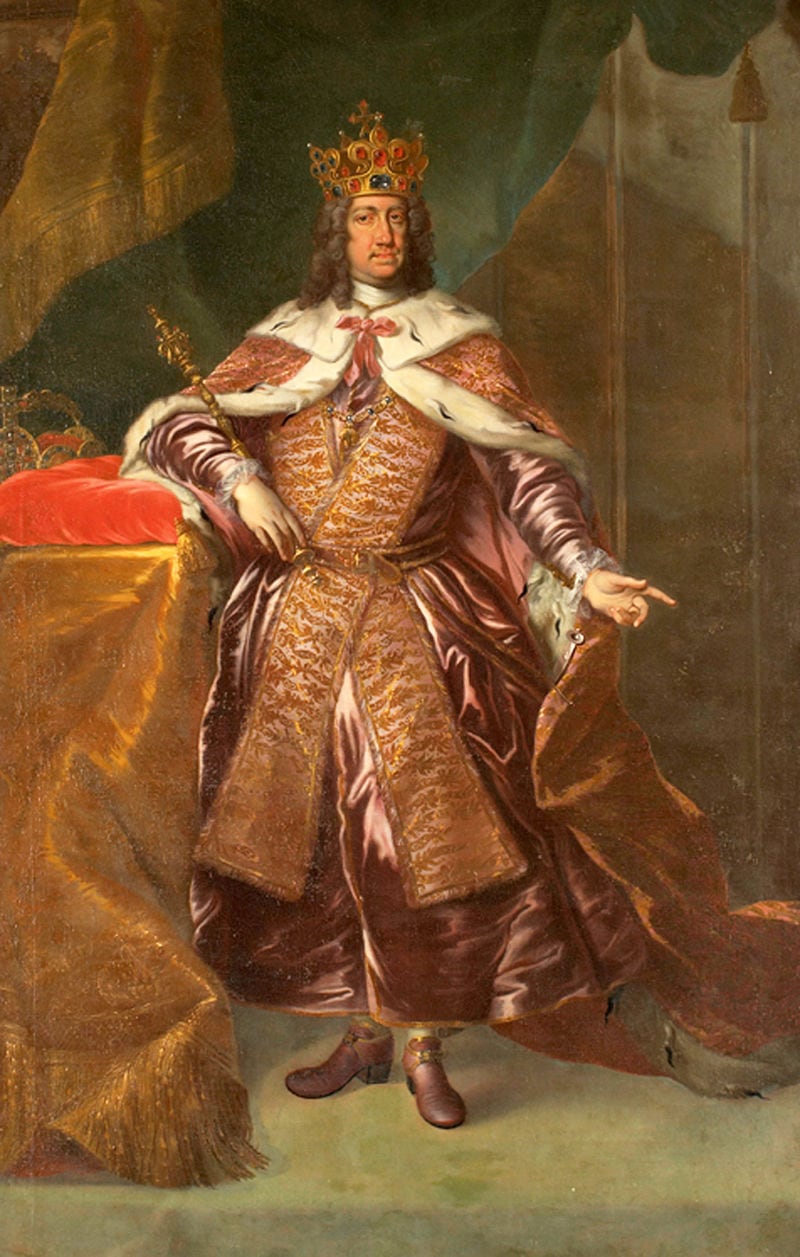5.9. 1723 Charles VI crowned King of Bohemia
Categories: Personalities , Calendar

In 1723, Emperor Charles VI decided to fulfil his eleven-year delayed promise to the Czech Estates that he would be crowned King of Bohemia.Thecoronation took place in St. Vitus Cathedral.
The declining importance of the Czech coronation was also evident during the reign of Joseph's brother and successor Charles VI (1711 to 1740). His Hungarian coronation took place a year after Joseph's death in 1712, while his coronation in Prague did not take place until 1723, twelve years after his accession to the throne, and was interpreted as the monarch's exclusive favour to the Bohemian Estates.
"In 1723, Emperor Charles VI decided to fulfill his eleven-year delayed promise to the Czech Estates upon his accession to the throne that he would be crowned King of Bohemia. He was moved to do so by a resolution of the Bohemian Provincial Council, in addition to the desired strengthening of the monarch's power in the lands of the Bohemian Crown.Assembly authorising the donation of 100,000 gold pieces for his coronation," says Karel Richter in his book Evžen Savojský: Lord of the Battlefields.
Charles's coronation took place in St. Vitus Cathedral after the Czech Estates kissed the hands of their king. The reign of Charles VI was marked by a dynastic crisis. Even Joseph I.., and Charles had no living male descendants, and the danger that the Habsburg monarchy would die out in the male line, which had threatened as early as the 17th century, was beginning to materialise.
"This situation was to be resolved by the so-called pragmatic sanction, which guaranteed that in the absence of male successors in the Austrian Habsburg monarchy, the succession would first go to the daughters of Charles VI, then to the daughters of Joseph I and, in the event, to the daughters of Leopold I. This provision became the legal basis for the succession of the daughters of Charles VI. Maria Theresa to the head of the Habsburg Estates after her father's death in 1740," write Jaroslav Pánek and Oldřich Tůma in their book History of the Czech Lands.
This new law had yet another function. Apart from the mentioned female succession, it was to guarantee the indivisibility of the Habsburg monarchy, which at the beginning of the 18th century was not divided into two parts. In the early 18th century, it was a dynastic union of three state units, namely the Austrian lands, the Crown lands in the Bohemian lands and Hungary. In each of these units, the Habsburg monarch reigned by virtue of his hereditary sovereignty.
"At the time of the publication of this law in 1713, Charles VI could have been the heir of the Habsburgs. had not yet reckoned with the birth of male offspring, and therefore did not long seek even its universal recognition It was only in 20. In the 20s, he let the pragmatic sanction be accepted by the exchange of the individual countries of the monarchy and at the same time began a complex diplomatic struggle for its international recognition," Pánek and Tůmá further state.
Sources:
Jaroslav Pánek and Oldřich Tůma, History of the Czech Lands
Karel Richter, Evžen Savojský: Lord of the Battlefields
www.wikipedia.org
The article is included in categories: